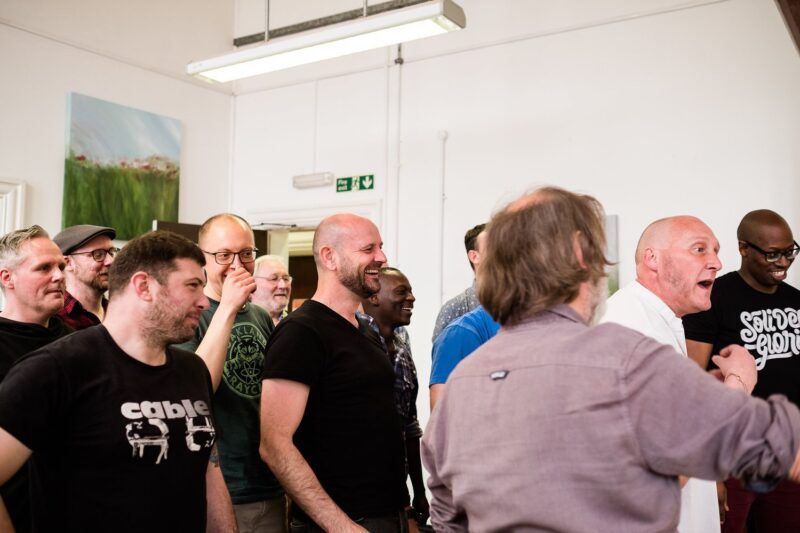I hope that Caitlin Moran will forgive me for stealing the title of her new book. I want to give a short update on our plans regarding investigating men’s participation in arts and mental health projects. This began with a blog by my colleague and continued with mainly desk research by me and a survey of arts organisations with 59 responses.
The desk research and a large number of conversations I had made me feel that this is a complex area. I previously had in mind the example of our creative ageing programme up to 2019, where it was uncontroversial that men participated less in arts activities and they would benefit from this. 26% of the 31,000 participants in the Celebrating Age programme identified as male. The picture is less clear cut when it comes to arts and mental health.

There is consensus that men’s mental health is an area of concern. Higher suicide rates and a reluctance to seek help are facts and often cited. Health inequalities lead to differential treatment and that is true, for instance, for young Black men among others. When it comes to arts and health there seems to be agreement that a large majority of artists are women (in common with a number of other areas of the arts).
However, regarding male participation in arts and mental health there seems to be a variety of views. A little under a half of our survey respondents felt men were under-represented in arts activities and only one quarter felt that this was an issue. However, it may be a mistake to over interpret a small survey. There were a large number of comments in the survey which belied the impression that this wasn’t a matter of interest. And there were a few responses warning against men dominating groups and wishing to make room to consider cultural issues.
In addition to all this, we were also made aware of work to target the inclusion of men and men only projects. The Men’s Shed’s movement is important here. While not considering itself an arts initiative, it does have a strong focus on crafts.
All this evidence has been considered by the Foundation’s trustees and they have come to the decision that this is an issue that we wish to consider further before drawing any firm conclusions. An important principle for the Foundation is always intersectionality. We are talking about half the population and then considering the one in four men who will experience mental health problems, and then their relationship to creativity. Those 8 million plus men will have an immense range of experiences and situations. What effects do age, class, sexuality, race and place have, for instance?
So, what we propose over the next six months or so is:
- to commission a report modelled on Creatively Minded and Ethnically Diverse;
- to visit as many projects as possible to get under the skin of this work;
- to hold at least one roundtable discussion.
And we would be grateful for your help. Please contact me on david.cutler@ing.com
- you would like to make a written contribution to the report either as a case study or an opinion piece;
- bring evidence to our attention;
- invite us to visit your work.
And that applies to Caitlin Moran too – I have bought your book!